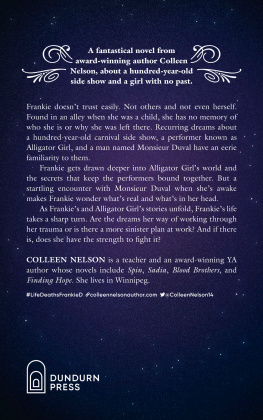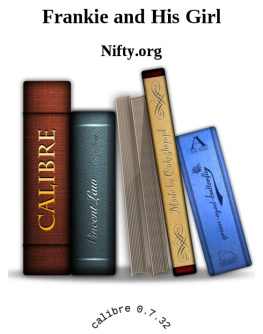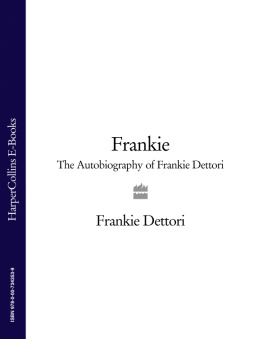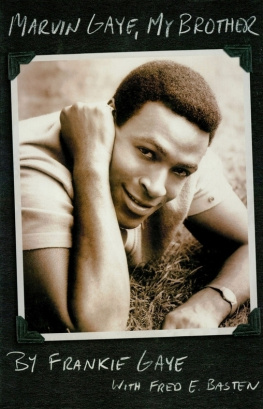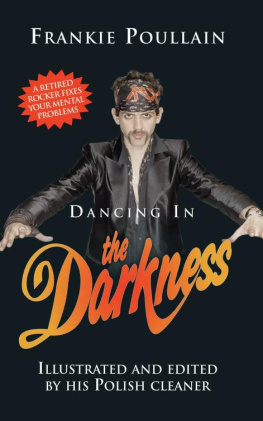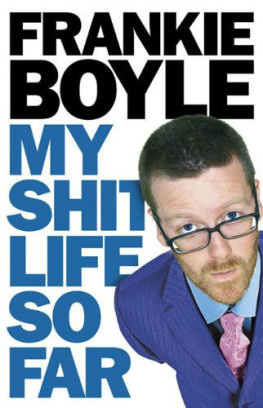LifeCaps Presents:
The True Story of the JerseyBoys
The Story Behind FrankieValli and the Four Seasons
By Jennifer Warner

2011 by Golgotha Press,Inc./LifeCaps
Published at SmashWords
www.bookcaps.com
Disclosure
While the contents of thisbiography have been researched, this book is not endorsed oraffiliated in anyway with Frankie Valli or The FourSeasons.
About LifeCaps
LifeCaps is an imprint ofBookCaps Study Guides. With each book, a lesser known or sometimesforgotten life is recapped. We publish a wide array of topics (frombaseball and music to literature and philosophy), so check ourgrowing catalogue regularly ( www.bookcaps.com ) to seeour newest books.
Chapter 1: Introduction
Frank Sinatra dazzled a lot of people with hiscrooning, but for Frankie Valli, Sinatra was not just a greatvoice.
Valli was only seven years old when his mother tookhim to a Sinatra concert at the Paramount Theater in New York City.What struck the young boy was not just the beauty of Sinatrasvoice, but the way he understood and got to the heart of thelyrics. The bright lights, the roar of the crowd all had a hypnoticand unforgettable effect on the young Valli. The stage, hereminisces, seemed like it was a hundred feet above hishead.
Sinatra hadan aura and right then, at seven years of age, Valli wanted tobecome a professional singer.
That concert may have been the first buildingblock in what became Frankie Vallis long, sensational career. ButSinatra was not the only jazz legend that Valli learned from.Growing up in Newark, New Jersey, Valli was surrounded byjazz.
In the 1920s, Newark was alive withentertainment. Sixty-three live theaters and a thriving music scenerooted in pubs and nightclubs made the city buzz. By the 1940s,when Valli was a young man, the city had lost a lot of its luster.Bad urban planning precipitated the flight of more affluentresidents while their places were taken by struggling immigrants.Valli was born into one such family.
But the city was still rich in music. Peoplewould gather spontaneously in the streets and harmonize under thestreet lights or under bridges. Groups of friends would burst intosong in pool halls. Valli would play hooky from school to hearconcerts in downtown Newark.
Valli would lower the volume of his radio to alight whisper so that he could continue listening to music allthrough the night and well into the early morning, often driftingbetween waking and sleeping. He stayed up to listen to SymphonySid, in particular, because that radio celebritys show went frommidnight to six AM.
It was an ideal atmosphere for a self-taughtmusician such as Valli would become.
Growing up in this musical bubble, Valliwanted to participate from an early age. He bought songbooks thathad the lyrics of songs he heard on the radio. Using the songbooks,he would sing along to the recorded greats, often imitating theirstyles and discovering that he could do a broad range of differentthings with his voice.
Looking back, Valli notes that this was bettertraining than going to a singing coach because the students of anyparticular coach all sound the same. Thats how theyve beencoached to sound.
But by doing impressions, you can broadenthat scope, Valli told a National Public Radio interviewer much,much later. There will be more possibilities when youresinging.
Valli says he was a jazz freak who listenedavidly to vocal groups like the Four Freshmen, the Hi-Los, and theModernaires. On any day that Newark did not provide the musicalstimulation Valli craved, New York City was only five miles away.New Yorks legendary Birdland Club featured a neon sign sayingBirdland, Jazz Corner of the World. There, celebrities rubbedshoulders with the most famous singers of the time. Some of thegreatest jazz albums were recorded there, live.
Valli could not have asked for a betterincubator in which to become a music legend in his own right. Hespent whole days in Birdland. He swooned to the vocal talents ofYma Sumac, a singer from Peru with a five-octave range. He soakedup the music of Dinah Washington, Nat King Cole, Count Basie, andStan Kenton.
It was during this formative time in Vallislife that he also heard Little Jimmy Scott, a jazz singer with anabnormally high contralto caused by Kallmann'sSyndrome. Kallmanns stunted Scotts growth so that his voicenever matured. His choirboy-like sound is more than likely one ofthe influences on the falsetto that helped make Vallifamous.
When he wasnt at Birdland, Valli oftenhaunted a pool hall in Belleville, but not so much to play pool.Instead, he found someone with a guitar and jammed. During thistime, Valli met Nick Massi. Massi encouraged Valli to develop histalent as a musician and the two eventually became bandmates in theFour Seasons.
Jazz was Vallis first musical love and he hasbeen known to say that he never intended to become a rock and rollstar. But rock and roll was the pathway to commercial success inthe 1960s when Valli came into his own as a musician, and he rolledwith it.
Valli is the son of Anthony Castelluccio, abarber who later became a display designer for Lionel model trainsand Mary Rinaldi who was, for the most part, a full-time motherthough she worked for a while in the beer making industry. He wasthe youngest of three sons. The name his parents gave him wasFrancesco Stephen Castelluccio, a handle even his earliest agentscould not wrap a career around, so they renamed him. Valli triedout several monikers on the way to settling down with one. First,he shortened his name to Valley, after his mentor Jean Valley.Later, he put some of the Italian immigrant back into it withValli.
Depending on who you ask, Valli was born in1934 or 1937. On his rise to stardom, he may have shaved threeofficial years off his age in order to increase his appeal to theyoung audiences he intended to reach. There is an ongoinguncertainty about his exact age.
He grew up in Newarks first ward. His familylived for years off Garside Avenue in an unheated apartment with nohot water. They kept warm in winter with a wood stove and manyblankets.
When he was six, the Castelluccio family movedto the Stephen Crane Village which, despite its poetic name, wasactually a housing development subsidized by the state. Valliattended Abington Avenue School and later Central High.
By 1950, when Valli was sixteen (or thirteen),Newark had already lost its foothold as an important and thrivinghub of manufacturing and transportation. Vallis prospects in hispoor Newark neighborhood looked grim. His father informed him thatthere would be no college experience waiting for him after highschool. Many of Vallis friends got absorbed into local organizedcrime, some of them achieving leadership positions in the mafia. Byhis own testimony, Valli knew people who ended up dead in thetrunks of cars, the victims of mob violence. The only path tohonest work seemed to be low-wage jobs in manufacturing orretail.
And that was certainly the path his fatherencouraged. Mr. Castelluccio did not at first believe that Vallicould make a living as a musician. He urged young Frankie to get areal job and settle down.
Valli admits to getting himself into troubleas a young man in Newark. His community and the young peoplegrowing up in it were beset with a sense of futility, a lack ofconfidence that they could escape what was a crime culture. Vallisays his community was nowhere near middle class. Most of hisfriends never got an education past high school. Many, like Vallihimself, dropped out.
He was arrested once for breaking andentering. He got in fights. But his life of aimless trouble makingcame to an abrupt end when he came home one night, bruised andbattered from a conflict with the police. His father, who rarelylet slip an emotion, cried when he saw how hurt Valliwas.
Next page

![Frankie Gaw - First Generation : Recipes from My Taiwanese-American Home [A Cookbook]](/uploads/posts/book/409729/thumbs/frankie-gaw-first-generation-recipes-from-my.jpg)



